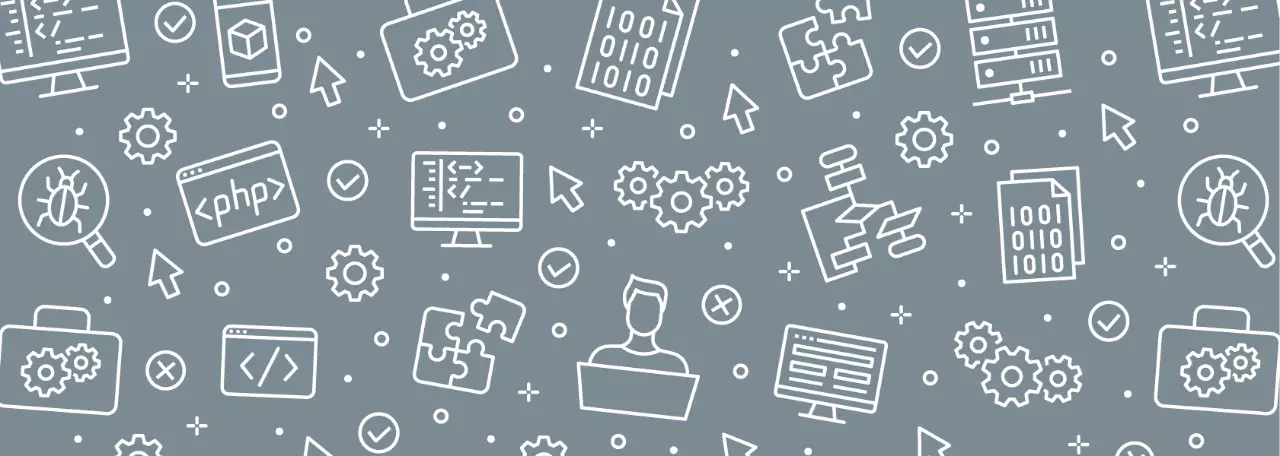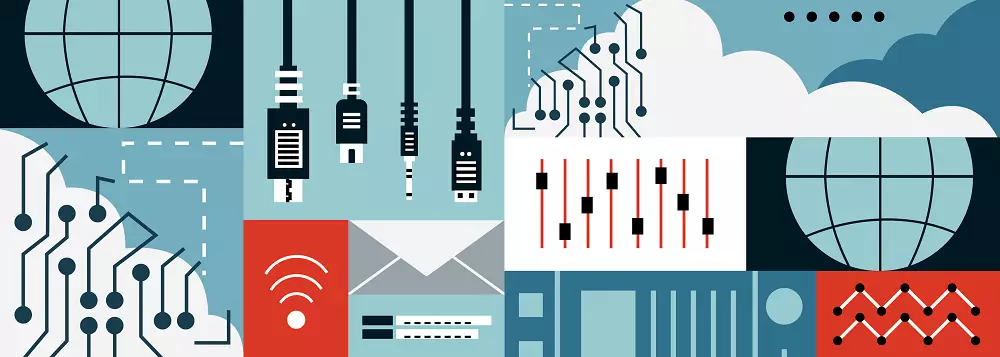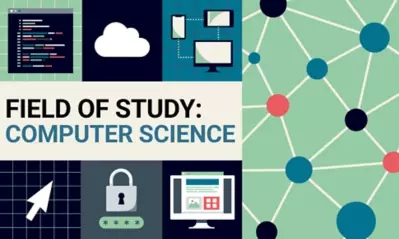Is public Wi-Fi safe?

At a glance
- Public Wi-Fi is not a secure connection and therefore opens your device to cybersecurity risks such as malware and spyware.
- If you want to stay safe when using Wi-Fi in public locations, use a VPN, turn off automatic network connections and only visit trusted websites.
- When possible, use hot spots and data over public Wi-Fi.
- Curious about cybersecurity? Learn more aboutМэonline IT degreesМэat °ДГЕМмМмІКҝӘҪұјЗВј.
As the 2010s progressed, public Wi-Fi networks became more common. Your local coffee shop, the airport and many other places offer Wi-Fi connections. These connections are convenient and helpful to many but put users at risk, according to computer science and cybersecurity experts.
In 2020, theМэМэand over $4.1 billion in losses. Public Wi-Fi can be aМэportal for internet crime. With the increase in remote work since the COVID-19 pandemic, more people are working on computers outside the office. When youвҖҷre working from home, you know you can keep your information private. But what happens when you take your laptop to the cafe down the road?
Learning how to keep your devices safe while using public Wi-Fi is the best way to protect your personal and financial information.
How can Wi-Fi be unsafe?
Public Wi-Fi is not as secure as a connection that has password protection. Connecting to public Wi-Fi opens your device to cybersecurity risksМэthat jeopardize your personal information, files and financial data.
One of these risks isМэmalware. Malware can be forcibly uploaded onto your device and can perform a variety of malicious tasks. Spyware gives a hacker access to your computer and files youвҖҷve saved. Keystroke tracking can keep track of everything you type, giving the hacker access to your passwords and, by extension, all your financial information.
Another risk is aМэman-in-the-middle attack. This happens when a hacker installs a rogue access point on a networkвҖҷs infrastructure, giving them access to the sites you visit and the information you share online.
ҙЎМэsystem update alert can also be a risk. You may get a notification that your device is due for a system update, but this alert may be fake if youвҖҷre on public Wi-Fi. Hackers can use fake updates to gain access to your device.
How to protect yourself on public Wi-Fi
As a rule, you should assume that any public Wi-Fi you use is not entirely safe. However, you can develop habits that will help you to stay safe online. Using a VPN, disabling your phoneвҖҷs ability to connect to networks automatically, and visiting вҖңHTTPSвҖқ encrypted sites are just a few ways to stay safe.
If youвҖҷre uncertain about a public Wi-Fi connection, you could always speak with an employee at that business to confirm the connection is theirs. But you should always approach public Wi-Fi connections with reasonable suspicion and employ protective measures.МэМэ
Does a VPN protect you on public Wi-Fi?
ҙЎМэvirtual private networkМэis a tool you can use to protect your information. A VPN works in multiple ways. First, the VPNМэencrypts dataМэyou send while on a public Wi-Fi network. This protects valuable information, such as your passwords.
A VPN alsoМэhides your computerвҖҷs internet protocol (IP) address. Hackers can use your IP address to identify, track and access your computer. You can use public Wi-Fi with less risk by hiding and encrypting this key information.
How to protect your information on public Wi-Fi
Sometimes, public Wi-Fi is unavoidable. When using public Wi-Fi, you can take action to protect your information. By taking these actions, you may reduce your risk of being exposed to hackers and malware.
Use a VPN
As discussed, VPNs create a tunnel of encryption that protects your data while on a public network. Various VPN services are available online, and theyвҖҷre user-friendly and easy to understand.
Make sure websites you visit are using HTTPS
When browsing the web while on public Wi-Fi, make sure the sites you visit begin with вҖңHTTPSвҖқ instead of вҖңHTTP.вҖқ This means the site is encrypted вҖ” it scrambles your data as itвҖҷs sent out, making your data very difficult to hack.
If you find yourself browsing an unencrypted page, take steps right away. Close your browser, and carefully look at every URL you visit from then on to make sure itвҖҷs encrypted.

DonвҖҷt enter personal information
When youвҖҷre using public Wi-Fi, avoid entering personal information on websites. If someone is spying on your device, theyвҖҷll be able to see what you type.
Try to conduct all banking transactions and other similar actions while on a secure network. You should also avoid logging in to your social media accounts. Finally,МэdonвҖҷt shop onlineМэwhen youвҖҷre on a public network, especially if itвҖҷs a site that saves your credit card information.
Restrict file sharing and AirDrop in public
In 2021, a group of German researchers found aМэ. At the time, this putМэ1.5 billionМэAppleМэdevices at risk, leaving them vulnerable to attacks from hackers who were nearby as data was sent.
When you use AirDrop or file sharing to send information to someone else, you may be opening a doorway to your personal information. If a hacker in close proximity interferes with your AirDrop connection, they can easily find their way into your device to gain access to sensitive information.
Hackers can also use these open connections as opportunities to infect your devices with malware and viruses that cause havoc on your computer or phone.
Sign out when finished
When using public Wi-Fi, you should take a few steps when disconnecting. First, sign out of accounts you may have signed in to while on the public network.
Second, always вҖңforgetвҖқ the network before you leave. You canМэforget Wi-Fi networksМэin your phone, computer or tablet settings. This will prevent your device from automatically connecting to the network without your permission the next time youвҖҷre at that location.
Disable automatically connecting to Wi-Fi networks
One way to protect yourself is to control what Wi-Fi networks you connect to. You can go into your phoneвҖҷs and computerвҖҷs settings to disable the ability to automatically connect to Wi-Fi networks.
This means you must initiate every Wi-Fi connection manually. Doing so prevents you from being involuntarily connected to a risky network.
If youвҖҷre connecting with public Wi-Fi, such as the one at your local coffee shop, try to confirm with an employee, so you know the exact name of their connection. Some hackers may make connections that look similar to the ones offered by trusted businesses in an attempt to trick youМэ(for example, вҖңStarbucksWiFiвҖқ versus вҖңStarbucks!WiFiвҖқ).
Learn what you can about cybersecurity
If youвҖҷre interested in keeping yourself and others safe from cyberattacks,Мэlearn information technology and cybersecurity skills. You can take courses at a trusted university or work with an already-trained cybersecurity professional to learn about the technical aspects of the various risks.
Whether you have one conversation, take one class or earn anМэadvanced degree in cybersecurity, increasing your knowledge is a great way to help keep yourself safe on the internet. If you find yourself interested in this field, you can work to protect others from the threats on public Wi-Fi connections.
Use mobile data and hot spots instead of Wi-Fi
If you need to use your device for more risky behaviors like banking and shopping, consider using mobile data or a hot spot from a friend or family member instead of connecting to public Wi-Fi.
This keeps your information away from a public network. If you donвҖҷt have an unlimited data plan, consider purchasing some data each month to use it during an emergency or when you donвҖҷt trust a connection you found in public. This way, youвҖҷre not forced to use a suspicious network simply because you donвҖҷt have a choice.
Try to avoid using a hot spot if you donвҖҷt know its origin. Sometimes,МэМэto lure people in.
Information technology degree options at °ДГЕМмМмІКҝӘҪұјЗВј
Whether youвҖҷre seeking to gain a basic understanding of information technology or cybersecurity, or youвҖҷre a working professional looking to expand your skill set, °ДГЕМмМмІКҝӘҪұјЗВј (UOPX) offersМэonline course collections, bachelorвҖҷs degrees and masterвҖҷs degrees.МэLearn more about undergraduate and graduateМэonline technology degrees from UOPXМэand start your IT journey today!
- Bachelor of Science in Information TechnologyМэвҖ” In this program you'll learn skills including business process, cybersecurity, information systems, operations and systems analysis.
- Bachelor of Science in CybersecurityМэвҖ”МэThis online program teaches skills such as security policies, network security, cybersecurity and more.
- Master of Science in CybersecurityМэвҖ” This online program explores in depth such skills and topics as cybersecurity, security policies and vulnerability.
- МэвҖ” This course collection can help you prepare to sit for the EC-Council Certified Ethical Hacker (CEH) certification exam. Topics include the phases of ethical hacking, recognizing weaknesses and vulnerabilities of a system, social engineering, IoT threats, risk mitigation and more.
- МэвҖ” This course collection can help you prepare to sit for the EC-Council Certified Incident Handler (ECIH) certification exam. This specialist certification focuses on how to effectively handle security breaches.Мэ
- МэвҖ” This course collection can help you prepare to sit for the entry-level EC-Council Certified Network Defender (CND) certification exam. Courses focus on protecting a network from security breaches before they happen.





